Google Pixel 7 review: yet another smartphone success story
The Google Pixel 7 has just about everything you could want from a smartphone in 2022 - and it's reasonably priced too

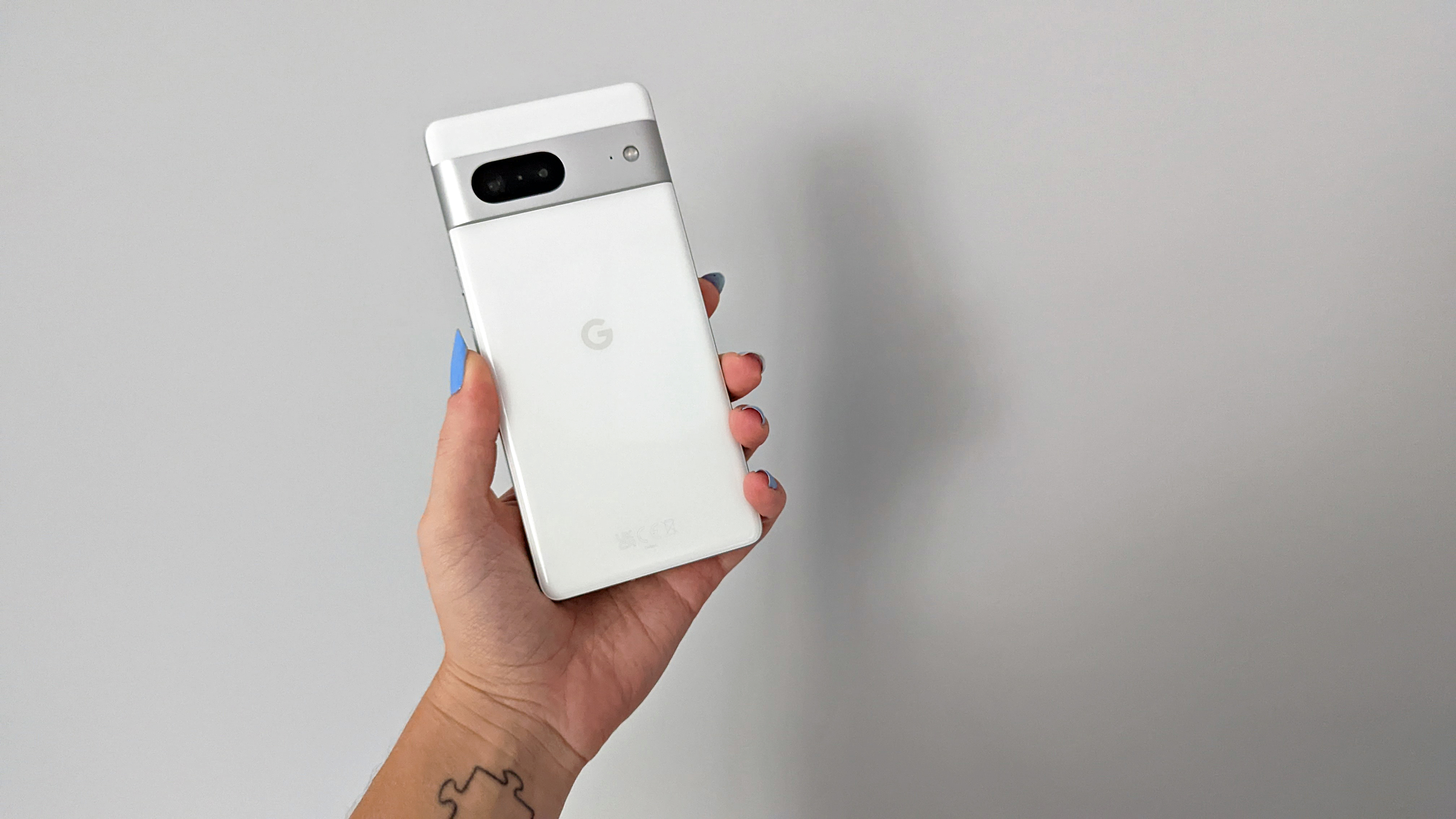
The Google Pixel 7 doesn't cost an eye-watering amount of money but manages to deliver in plenty of ways. Just like the phones that came before it, the focus is on the software and camera system, but this time things have been taken up a notch with a fresh design and the new Tensor G2 chipset.
-
+
FHD+ screen, 90Hz
-
+
Google Tensor G2 chip
-
+
Packs an extensive array of features
-
+
Runs on pure Android
-
-
Underwhelming battery life, slow charging
-
-
No telephoto camera
-
-
Doesn't come with a charger in the box
Why you can trust T3

If you’ve landed on this Google Pixel 7 review then chances are you’re in the market for a new feature-packed smartphone, you've certainly come to the right place for that.
The Pixel 7 launched alongside the Google Pixel 7 Pro and the Google Pixel Watch at a MadeByGoogle event on the 6th of October 2022, and as we have come to expect, they caused quite a stir.
Google Pixel handsets are getting better and better year after year, they're really popular because of it. What sells them is that they're a competitively priced alternative to the most premium flagship devices but that doesn’t mean they make any huge sacrifices. Actually quite the opposite, you can expect to get a whole host of features that you wouldn’t find anywhere else, especially when it comes to the camera system.
The Google Pixel 7 sits towards the top end of the mid-range but I'd say its price tag is pretty reasonable given just how much you get for your money. To sum up this review in a sentence: the Pixel 7 is one of the best Android phones you can buy right now.
Here you’ll be able to find out everything else you need to know about it, from details on its design and screen to how I got on with its camera system and performance as well as the lowdown on all of the extra features that make it stand out from the crowd.
Google Pixel 7 review: price and what’s new
If you buy the handset straight out, the Google Pixel 7 starts at £599 in the UK, $599 in the US and AU$999 in Australia for the model with 128GB of storage. Look at the widgets on this page to see where you can pick one up and be sure to check out the best Pixel 7 deals before you buy.
Following on the Google Pixel 6, the 7th generation has been improved in a few ways - the most noticeable change is the design which has been made to look even more refined with an alumnium camera strip, softer curves and a smaller 6.3-inch screen (down from 6.4-inch before).
Get all the latest news, reviews, deals and buying guides on gorgeous tech, home and active products from the T3 experts
While the rear camera set-up is largely the same, you do get a new 10.8MP selfie snapper on the front as well as some fresh features like Photo Unblur. Then under the hood, there’s a new Tensor G2 chipset which promises better machine learning across the whole system.
Google Pixel 7 review: design and screen
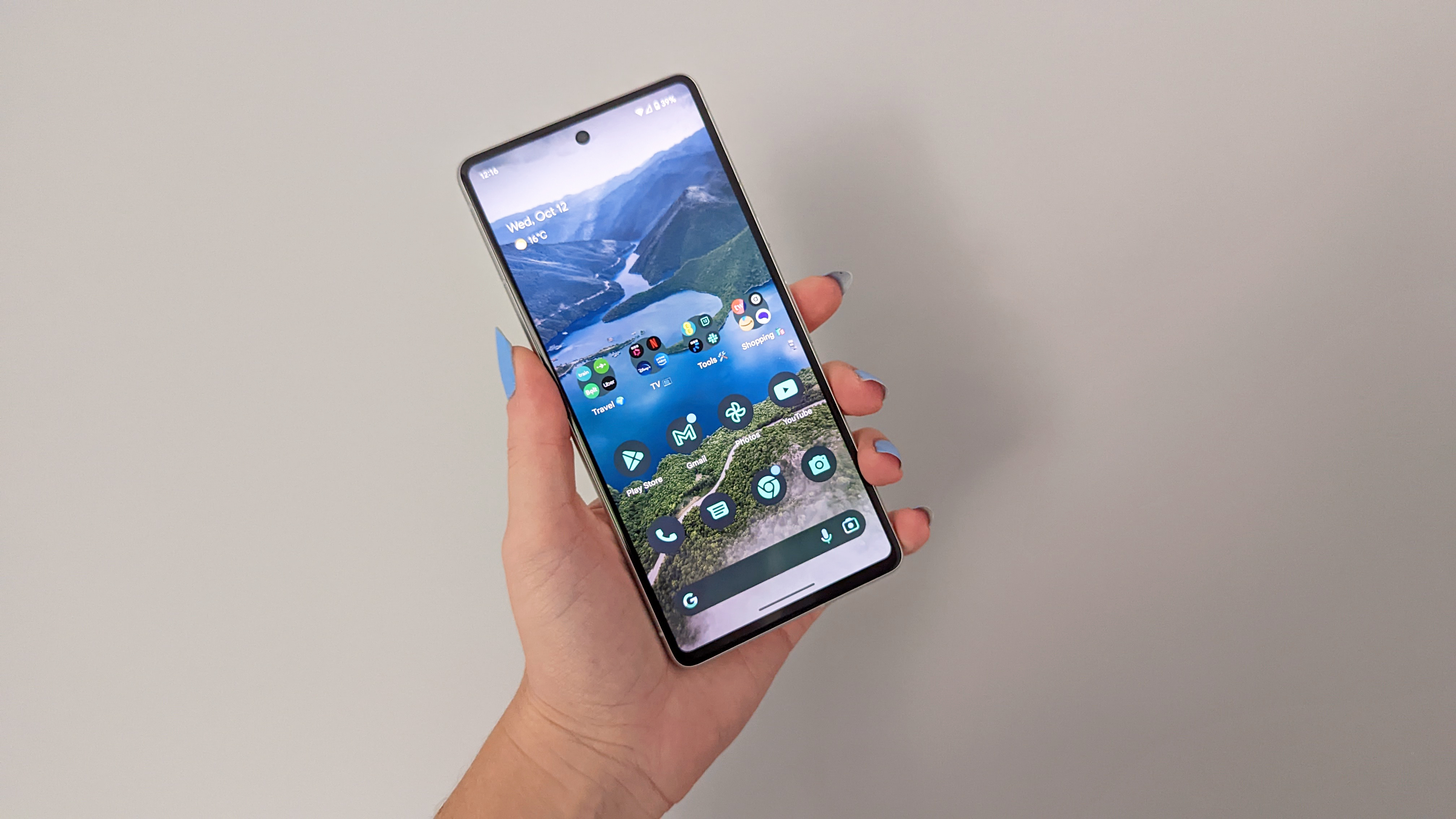
When you first unbox the Google Pixel 7, you’ll notice it looks a little different to the Pixel 6 that came before it, it’s a lot more grown up and refined with smooth curves around the edges, a matte alumnium frame and a matching camera module on the back that stretches across the width of the phone with an oval cutout to fit the two lenses.
A discreet Google ‘G’ is placed in the middle of the back panel but it doesn’t interrupt the design at all. You can buy the Pixel 7 in three new colours - Google has ditched the two-tone design in favour of solid blocks of colour - it comes in Obsidian black, Snow white and ‘Lemongrass’ which is a pale yellow.
The new camera strip, just like the last, is a little prone to getting dust stuck in the grooves, it's not a huge problem but it is a little unsightly. Of course, that won't be so much of an issue if you were to buy a protective case.
Anyone with smaller hands will appreciate the size of this phone, it measures 155.6 x 73.2 x 8.7mm and weighs 197g which makes it much more comfortable to hold than the all-singing, all-dancing flagship. You can reach across the whole width of the screen using just your thumb so it's very easy to navigate one-handed. Admittedly, the phone feels a little thicker than other handsets but that didn't stop me keeping it in my pockets.
Corning Gorilla Glass Victus covers both the back and front of the phone, which should mean it’s scratch resistant as well as somewhat protected against knocks and drops. What’s more is that it’s fully water and dust-proof, with an IP68 rating, so you don’t need to worry about using it in the rain or somewhere particularly dusty like at the beach.
Around the frame, things look pretty simple with a USB-C charging port and a SIM card slot. One thing that’s worth mentioning is that the Google Pixel 7 does actually support the new eSIM format as well which lets you load up your network directly onto the phone instead of fiddling around inserting a physical SIM card.
There’s no headphone jack here so you’ll either need to use it with Bluetooth headphones instead of old wired ones or buy a USB-C converter.
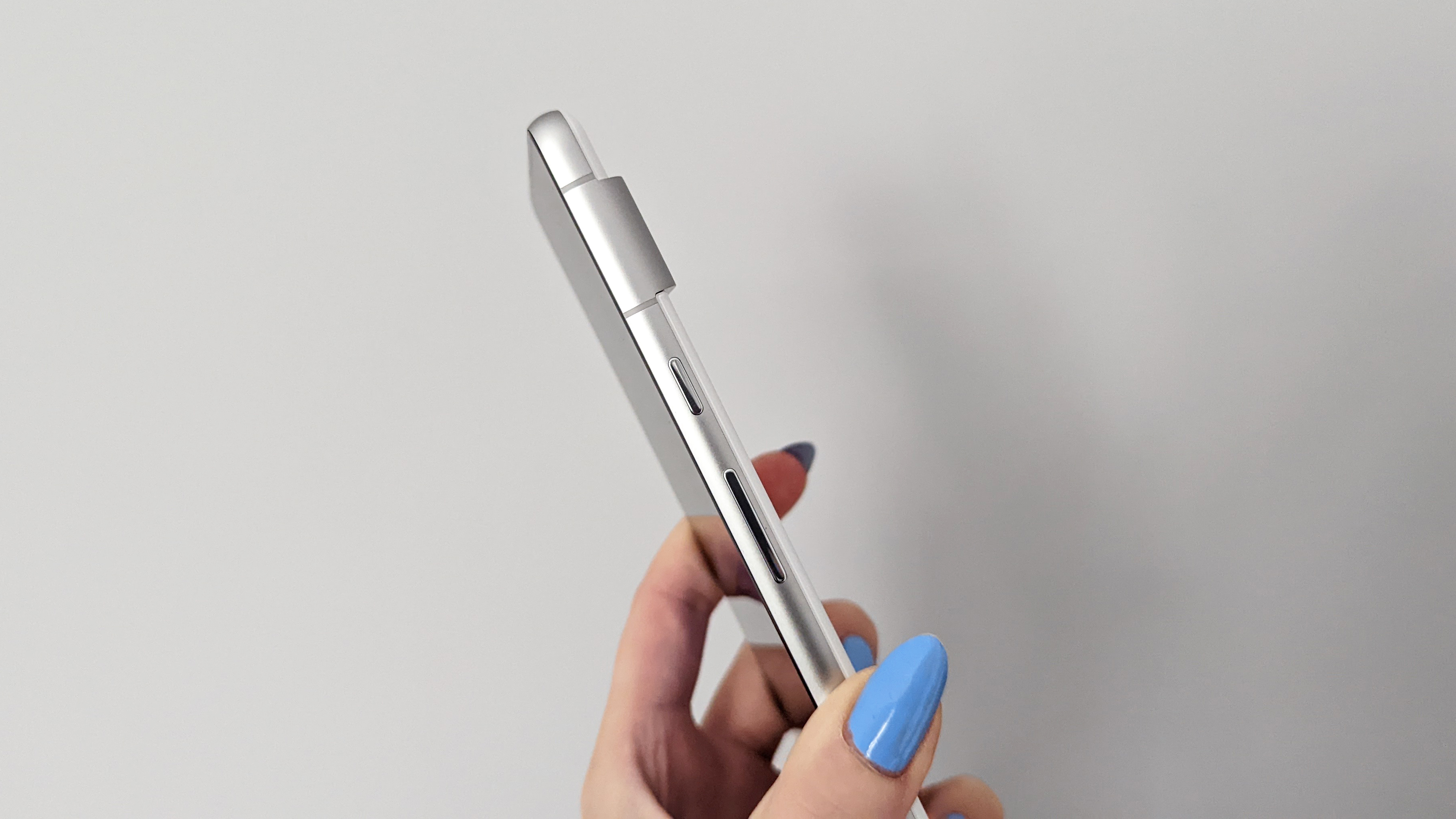
The volume rocker is placed very cleverly just above where the tip of my thumb naturally sits which made it very easily accessible, then the power button is placed just above that. My only issue with the buttons is that they feel a little loose and perhaps a tad flimsy so I can only hope that they won't break further down the line.
Flip the phone over and you’ll find a 6.3-inch display surrounded by slim bezels with a hole-punch style camera centred towards the top of the screen.
The screen is a lot smaller than you get on the Pro model of the phone which has a 6.7-incher. For some, that’ll be better and for others, it won’t be. I personally got used to it very quickly and still found it was big enough for everything I tend to use my phone for day-to-day.
In terms of specs, you get an FHD+ OLED screen with a resolution of 1080 x 2400p at 416 PPI, a 20:9 aspect ratio with 1,400 nits peak brightness and up to 90Hz refresh rate.
While the screen tech isn't necessarily top-tier, it’s all perfectly good enough, especially given the price. Colours look bright, details look sharp and it still feels very smooth to swipe, scroll and tap on. I was pleased with the screen overall, it did the job for everything from photo editing to web browsing and streaming video. Adaptive brightness also meant it would adjust according to where and when I was using it which is never a bad thing.
Unlocking the screen is simple using either the in-display fingerprint sensor or through face unlock which is new for the Pixel 7 series. I found both worked quickly and efficiently with no issues at all.
Google Pixel 7 review: cameras
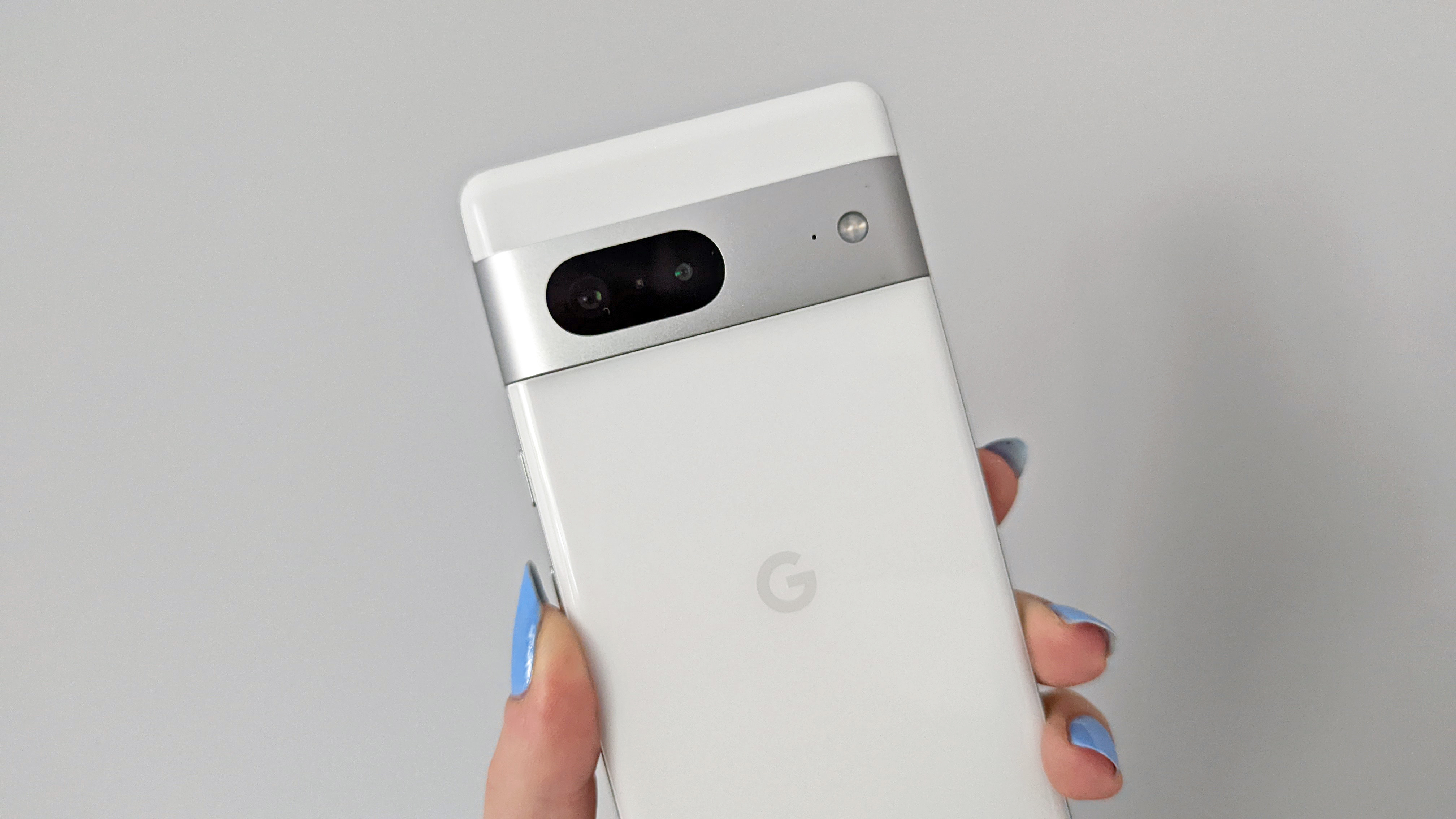
Made up of a 50MP Octa PD Quad Bayer wide camera with an 82° field of view as well as a 12MP ultrawide camera with a 114° field of view, the Google Pixel 7 has the same rear lenses as the Pixel 6, but the selfie snapper has been boosted to 10.8MP up from 8MP before.
The only way the setup here is different to the 7 Pro is that you don't get the third rear camera, a 48MP telephoto lens with 5x optical zoom and potential for 30x Super Res Zoom. That means the Pixel 7 inevitably suffers in its zoom capabilities as it can only reach 8x Super Res Zoom.
You can see the impact of that in the photos below, it crops the image as you go in which ultimately means a loss of detail particularly when you go above about 2x zoom. But not everyone makes use of their phone camera's zoom anyway so it may not be an issue for everyone.
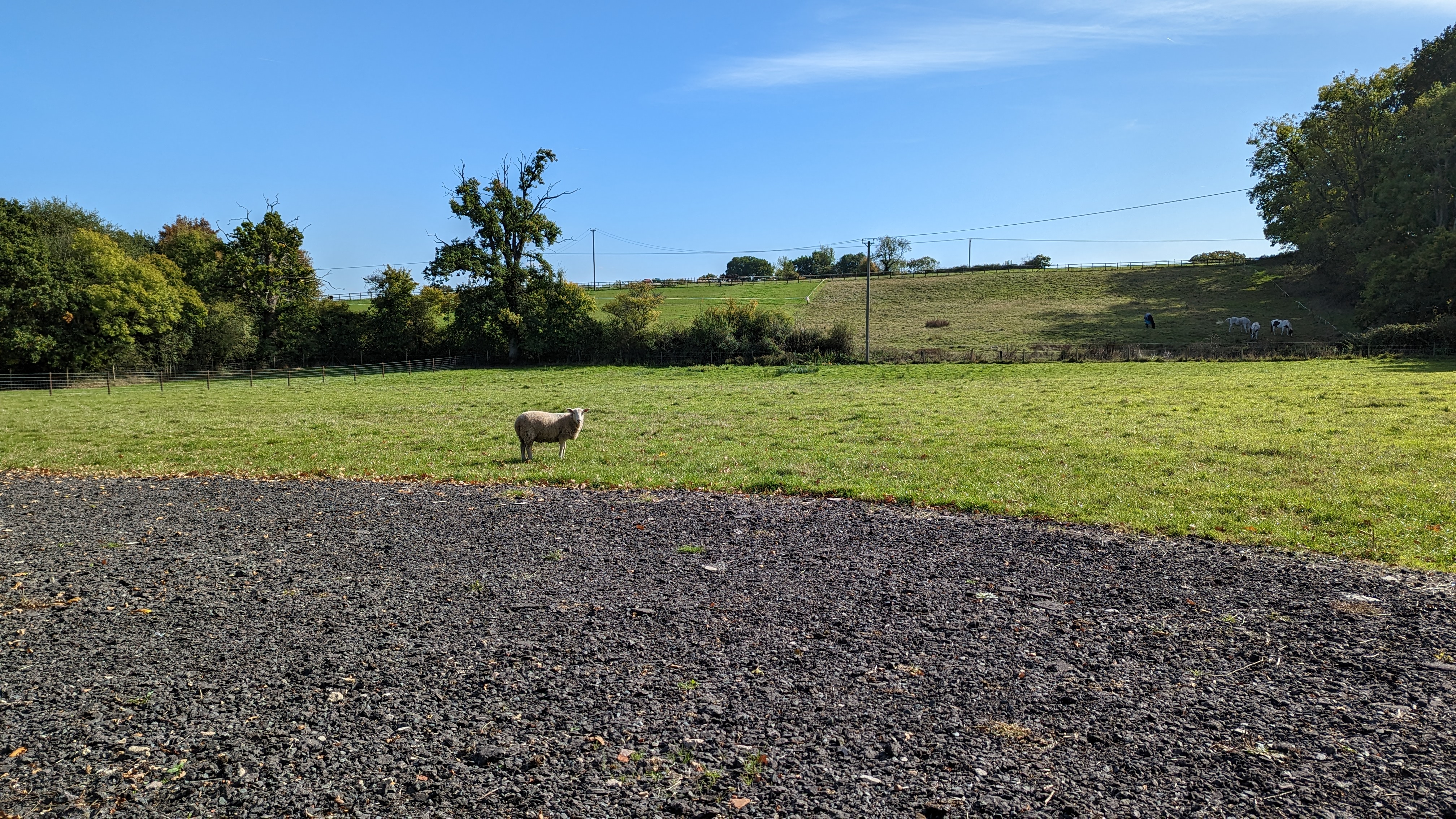
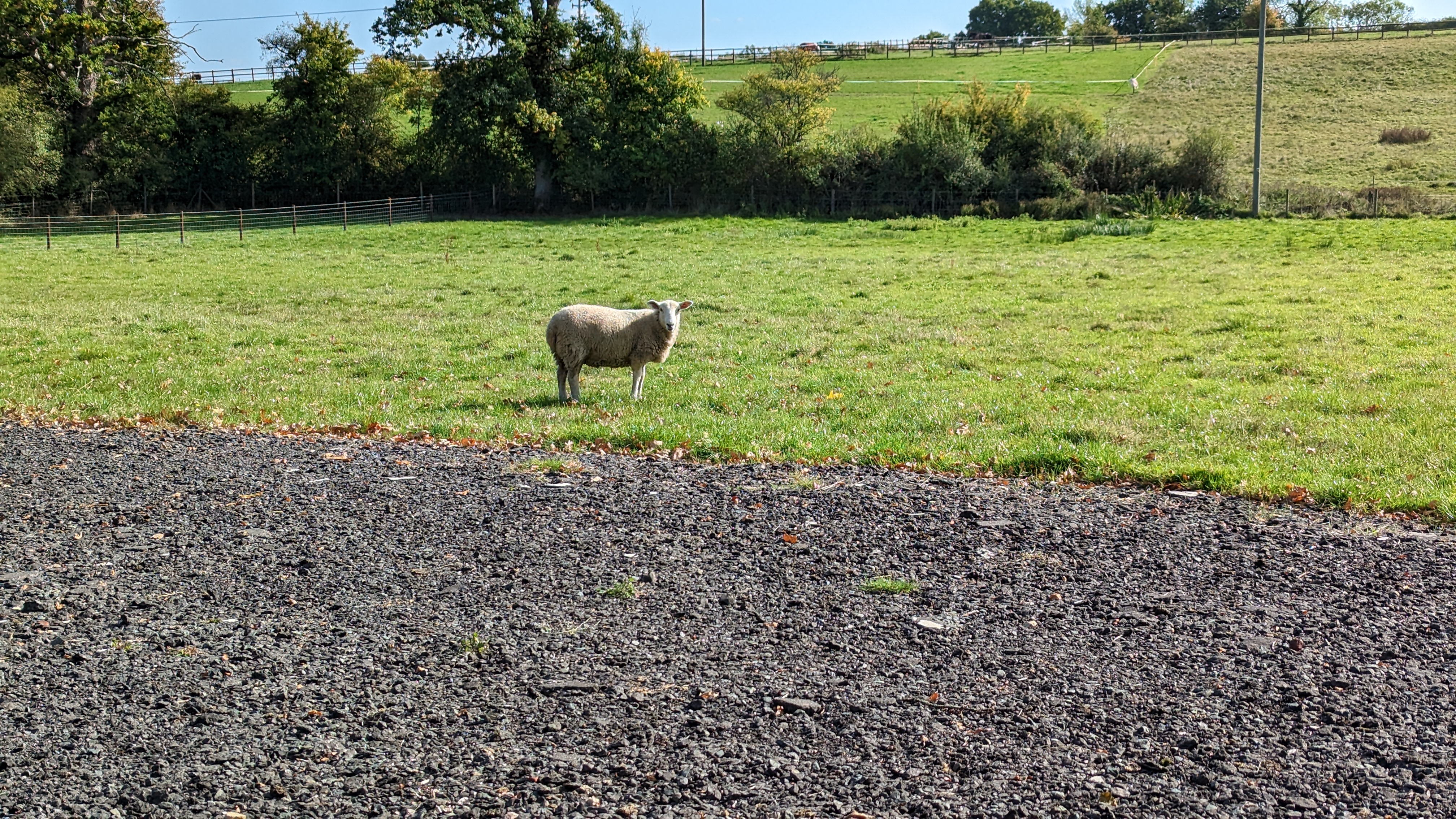

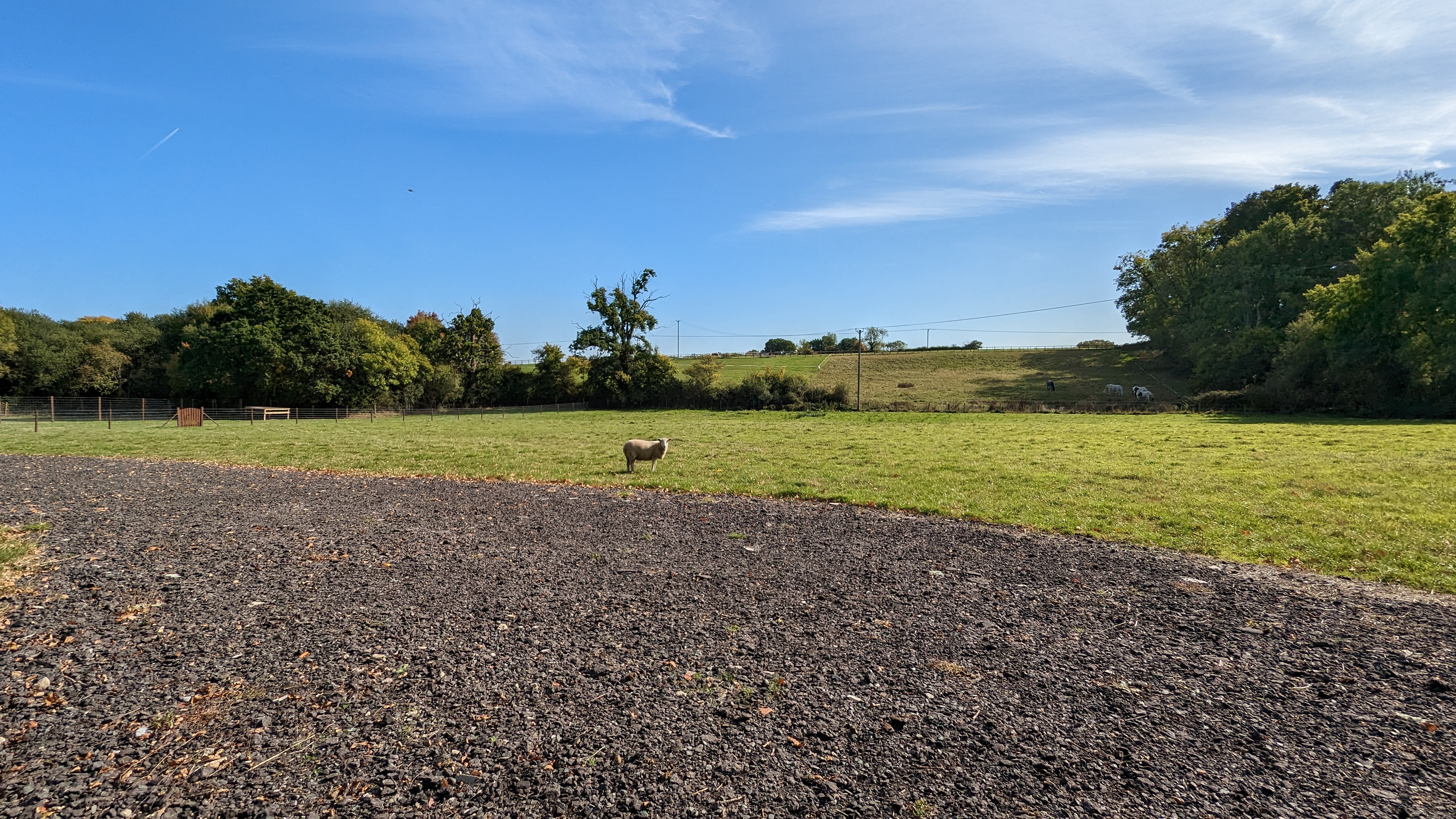
Outside of that, wherever or whenever you snap photographs on the Pixel 7, you can expect some high-quality results. My shots came out looking pretty excellent time and time again with sharp lines, good contrast between light and dark areas as well as vibrant colours, even if they did at times look slightly over-saturated. The shutter acted quickly too, snapping the shot almost instantly during the day.
The improvements in the selfie snapper make a big difference, I was already a fan of it in last year's Pixel 6 devices, and now it's even better. Shots are flattering and well-balanced, and if you didn't get it right the first time you can scroll through a reel of a second or two before and after the final result to pick a better frame.

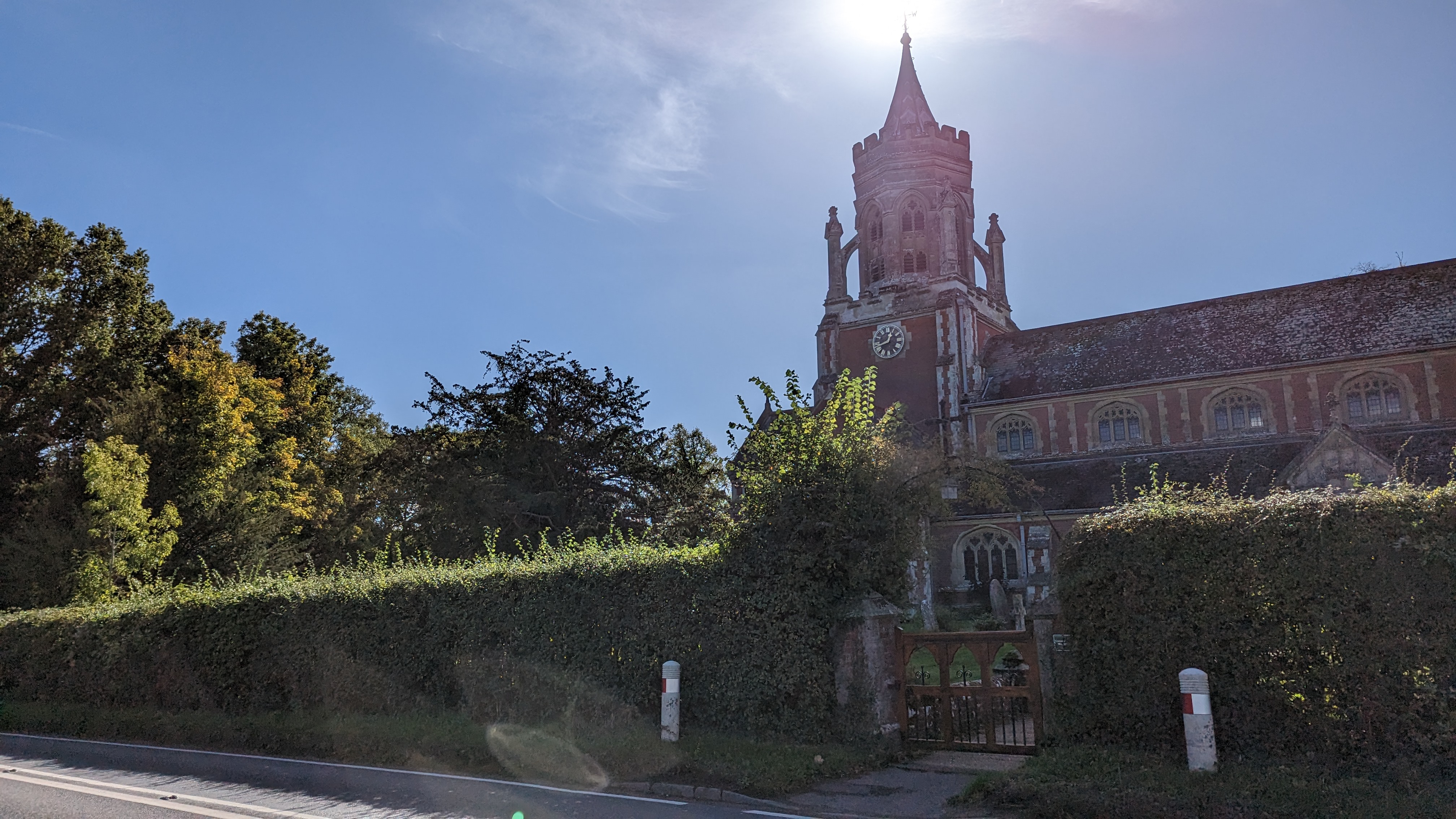
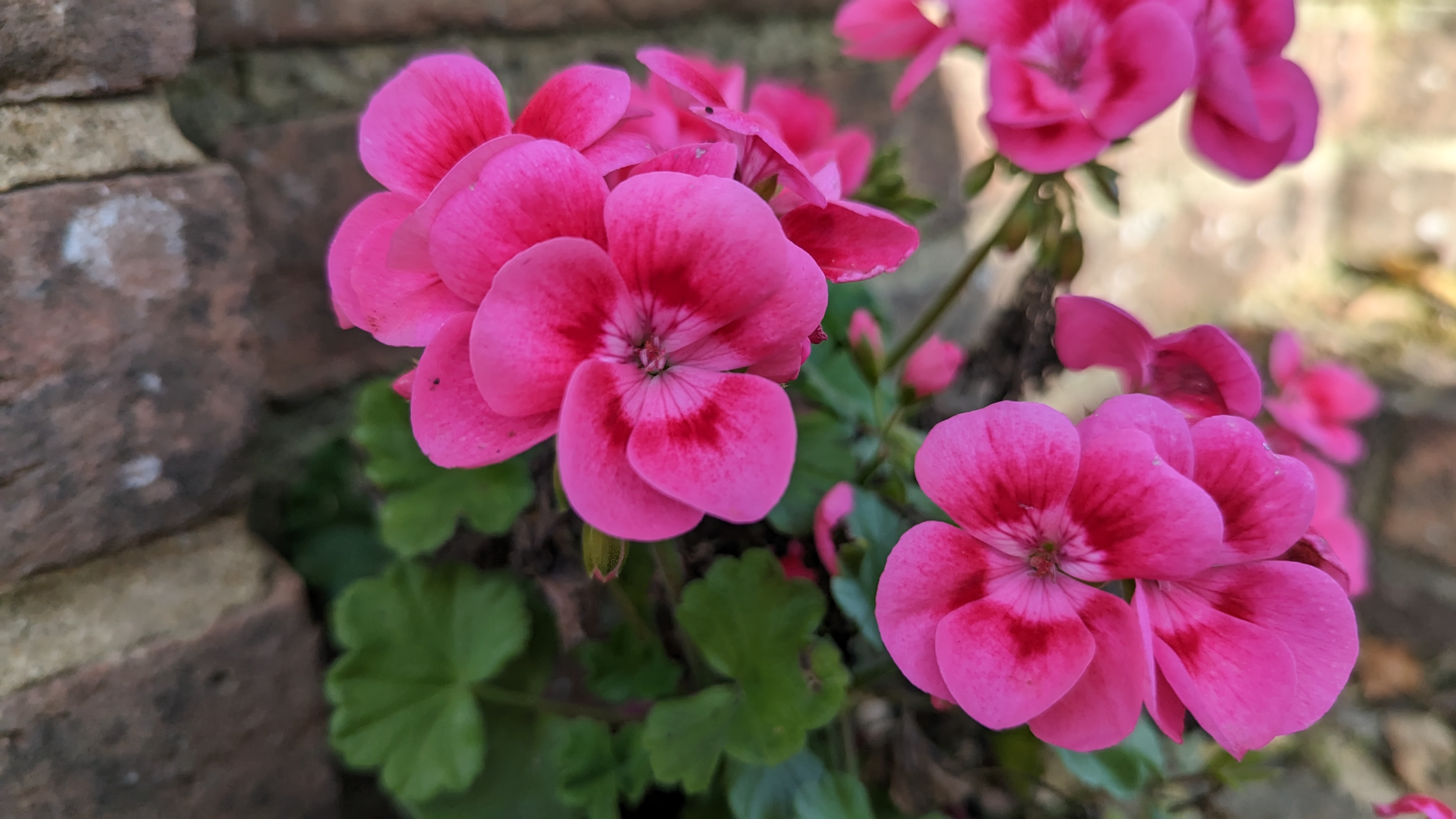
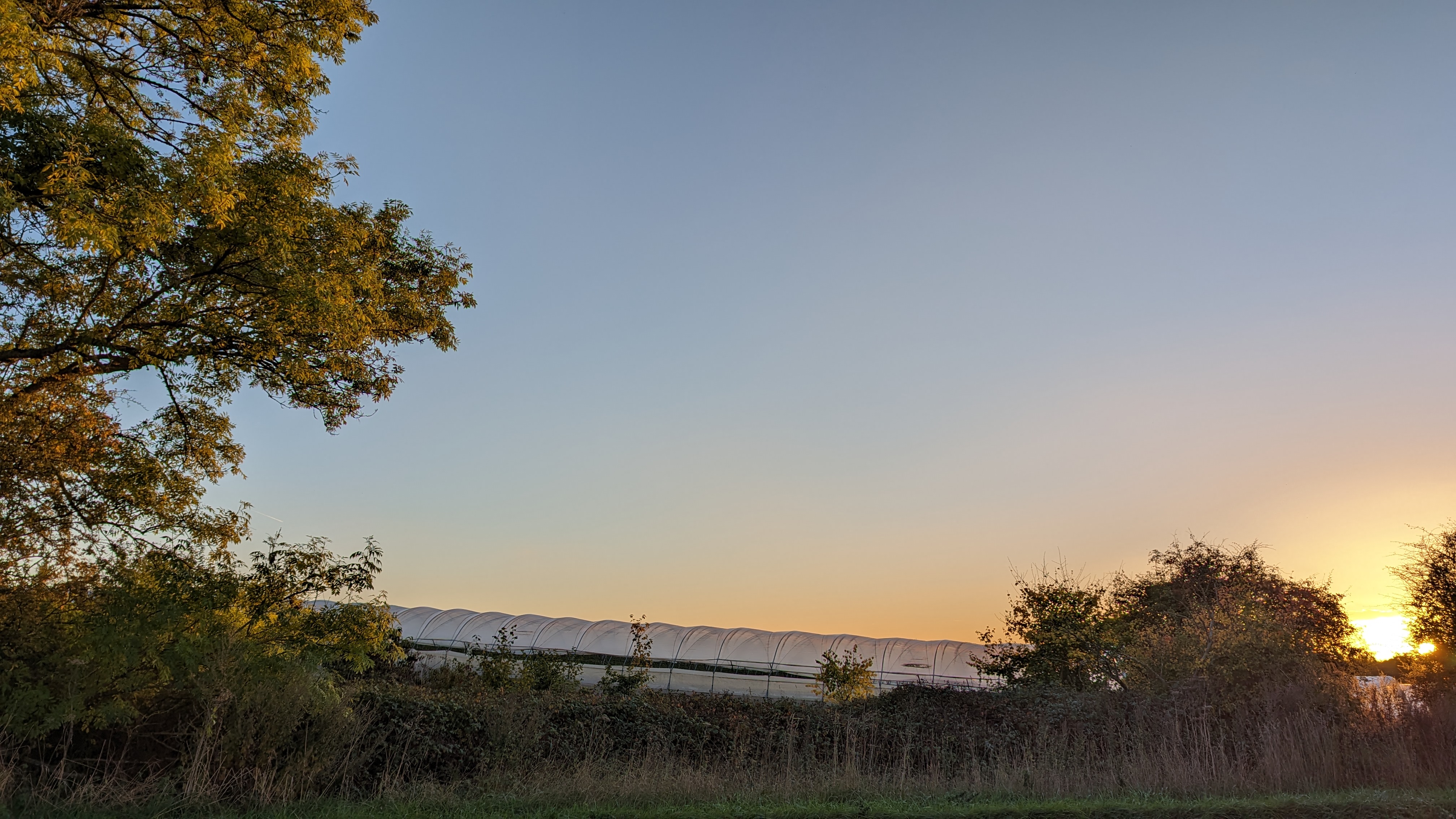
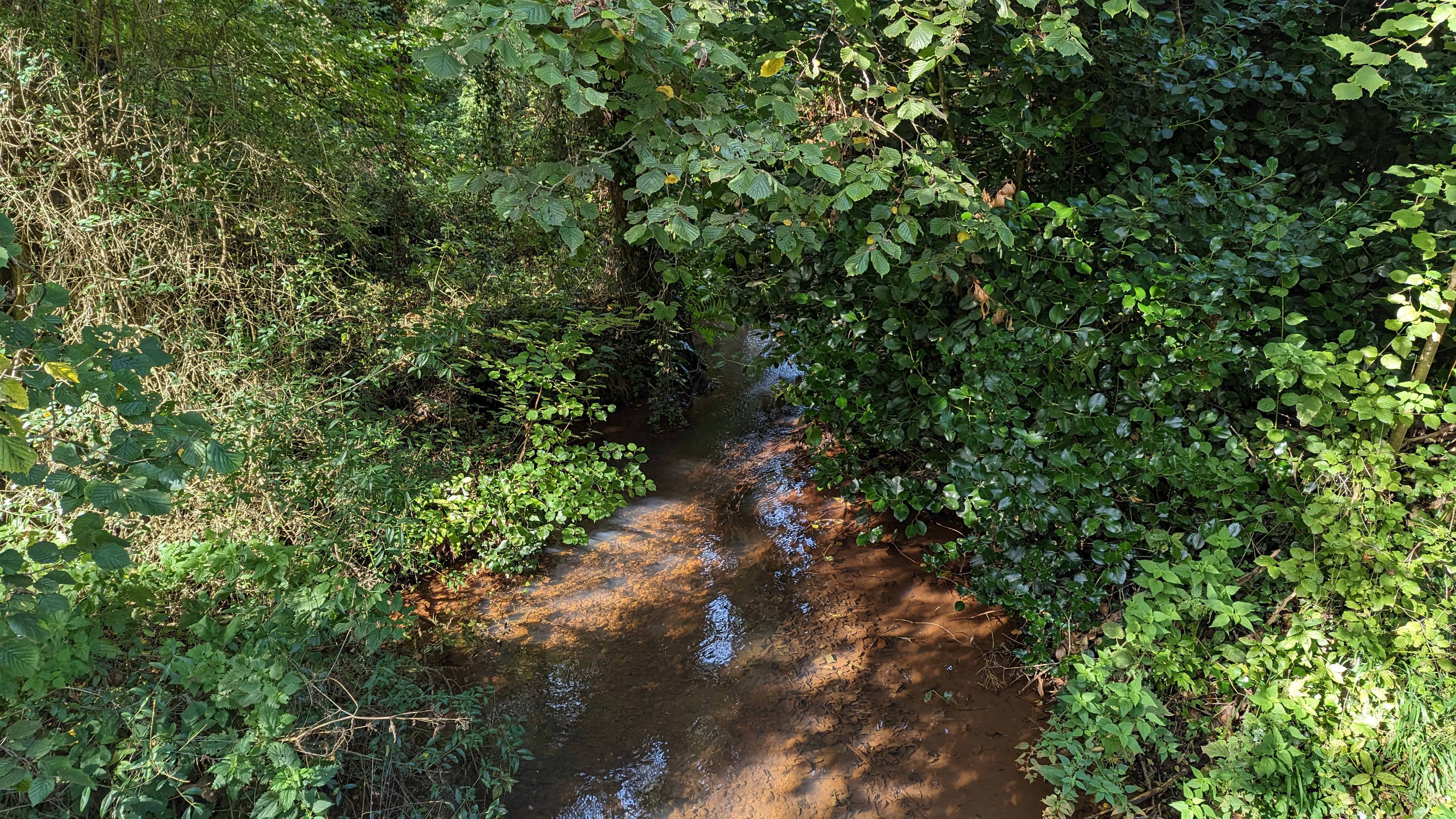
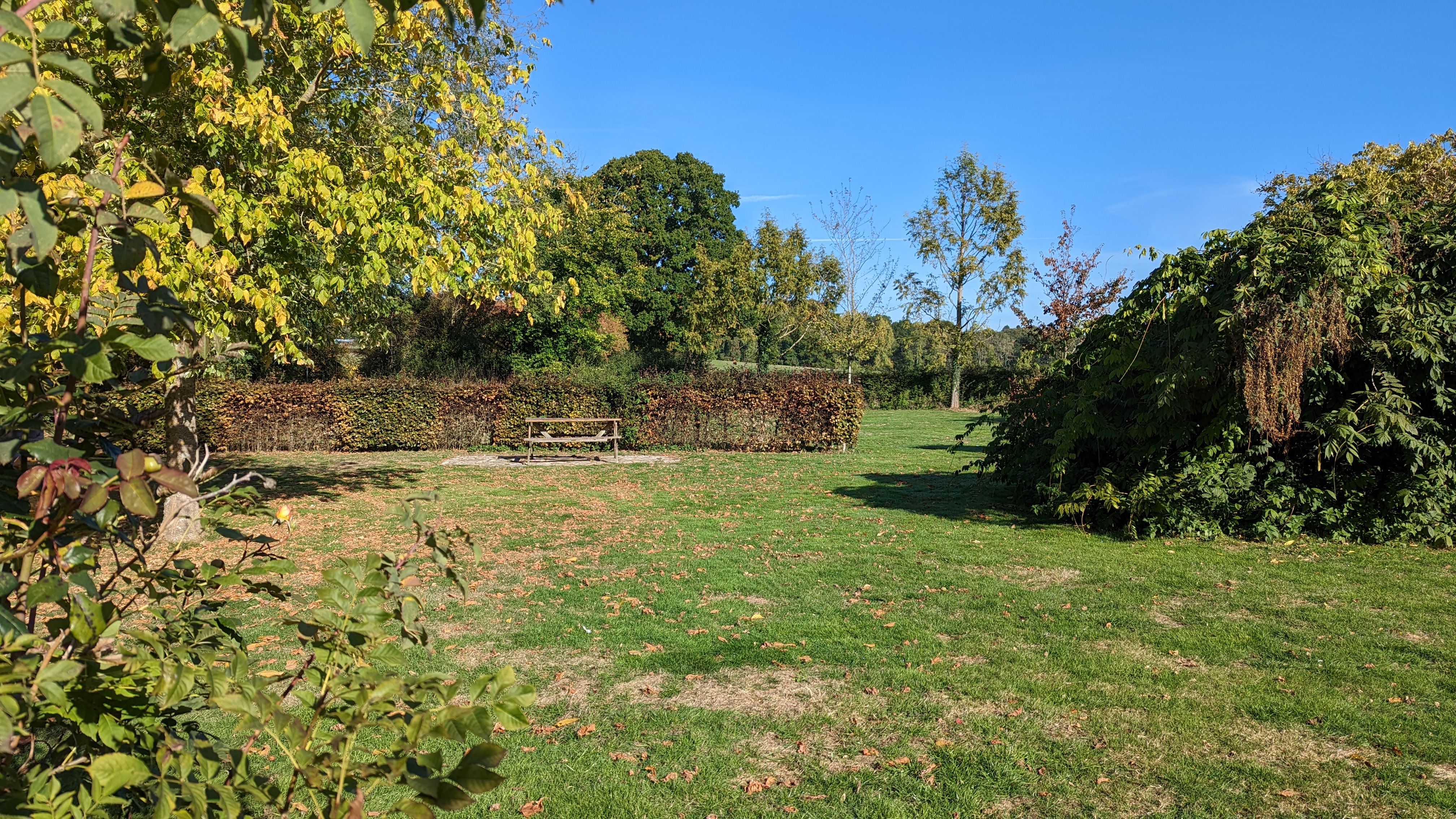
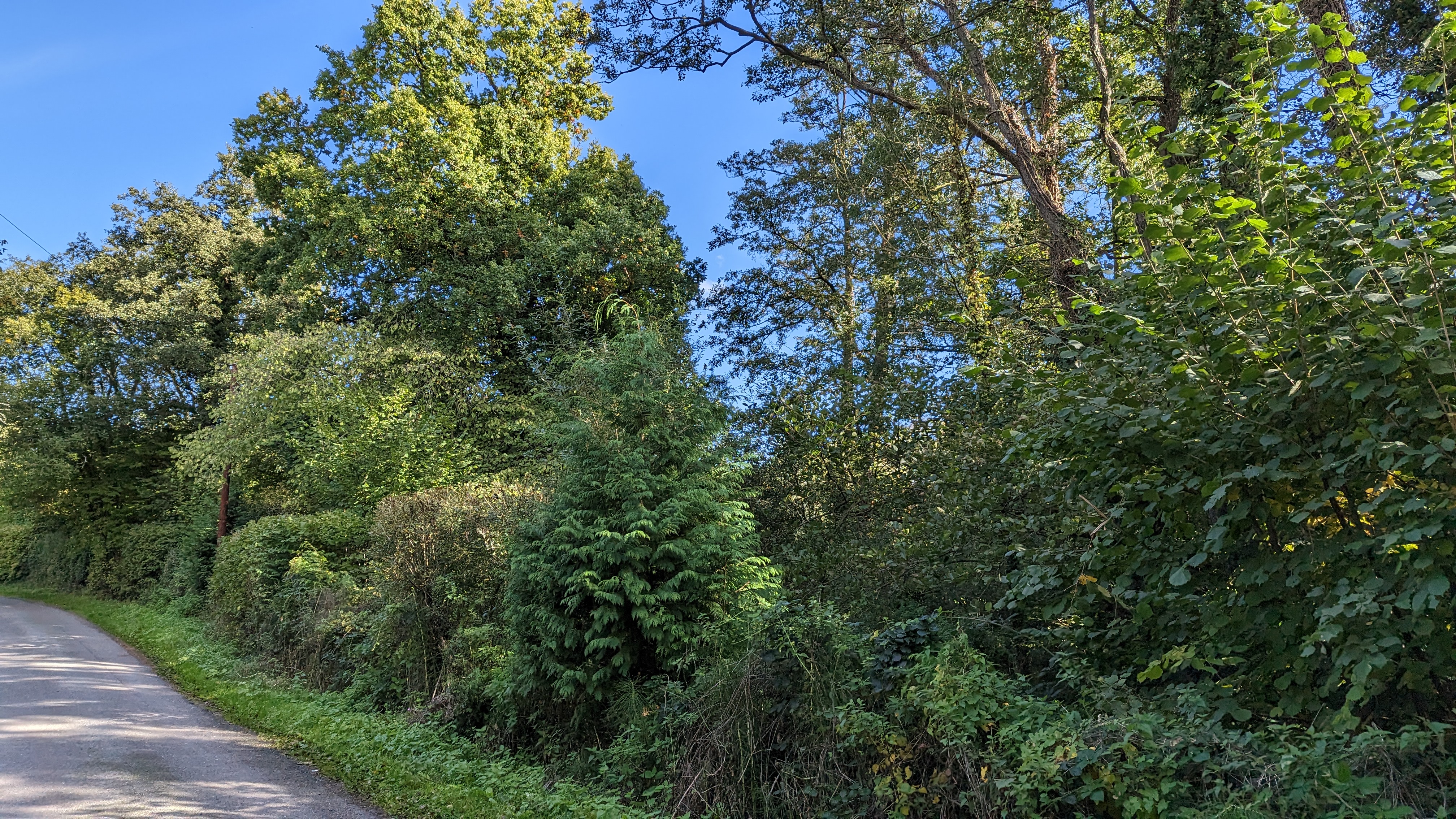
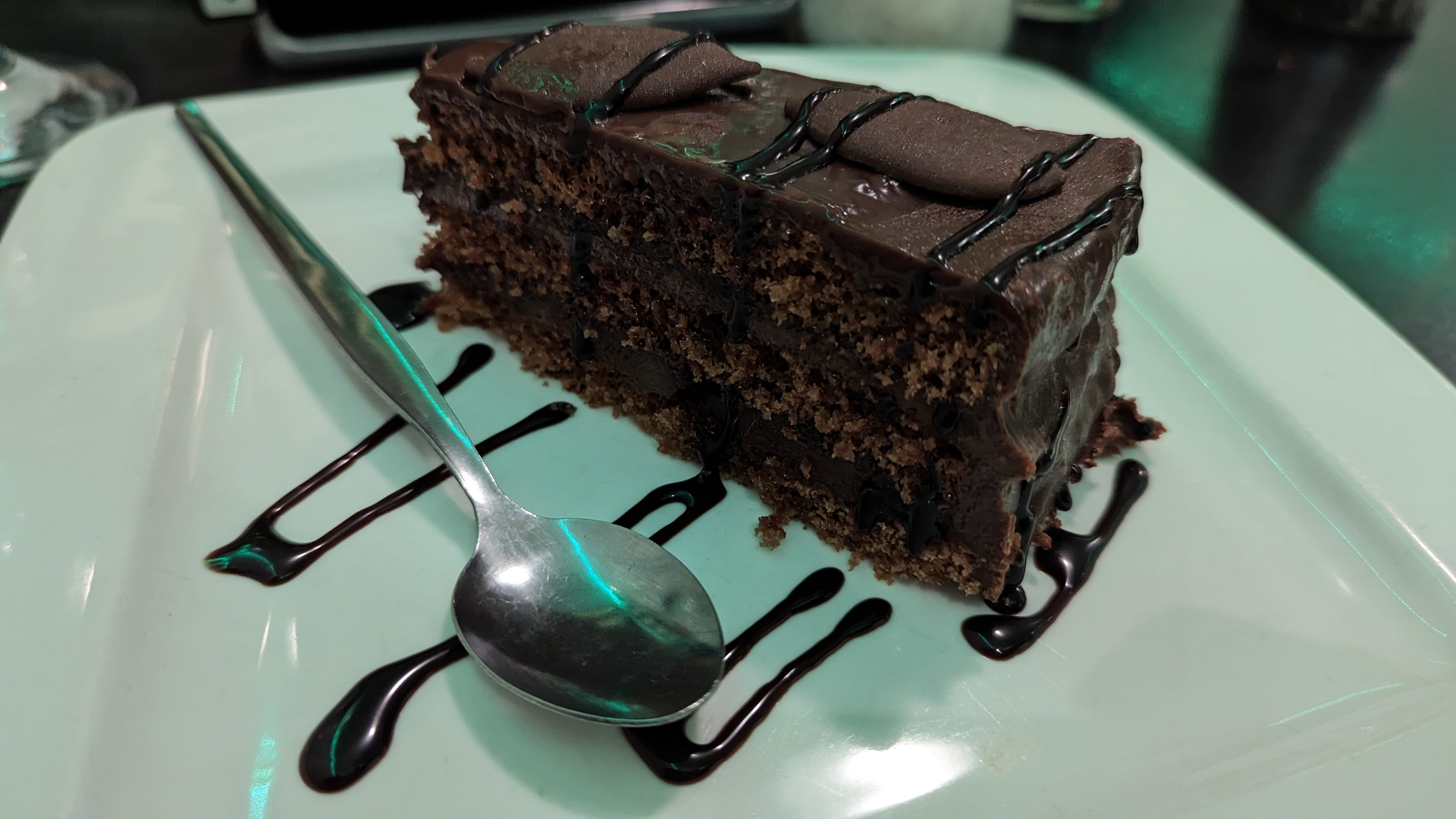
Google cameras all use Real Tone photography which helps to portray skin tones in the most authentic way possible, no matter the lighting. For that reason, Pixel phones are some of the very best for snapping shots of people.
So what we've determined is that the Google Pixel 7 has a very reliable point-and-shoot camera, but it’s the array of extra AI-based features that sets it apart from the crowd.
Last year the Magic Eraser was introduced which removes objects from the background of your photos without it looking unnatural, this year the big talking point is the new Photo Unblur feature which sharpens up shots that have suffered from camera shake or low lighting (it works on both old and new images).
I tried it out and I struggled to take a blurry shot even when I was waving the phone around. Applying it to old shots from other phones, it worked well when the photo was only a little blurred but it doesn't work so well on much more distorted images. I would say that's kind of expected, though.
Another feature that you will definitely make use of is Night Sight which lets you take high-quality photos even when there’s very little light. As you can see below, this camera takes evenings in its stride, lightening up darker areas of the shot and giving life to each corner, even if it does take a second or two to capture the scene. I was very impressed with the improved Night Sight all in all.

That's not all there is to say about the camera, there are a few more features to talk about. For example, Guided Frame has been added as an accessibility feature to help blind and low-vision users take selfies. It guides you using audio and vibrations to position your face in the centre of the screen, then lets you know when it has taken the photo.
The Google Pixel 7 also comes with a few tricks to film better video footage, it supports 4K video recording at 30fps and at 60fps with modes like Cinematic Blur to make the results look even more professional by tracking the subject of the shot (people or pets) and adding a bokeh effect to the background.
Google Pixel 7 review: performance and features
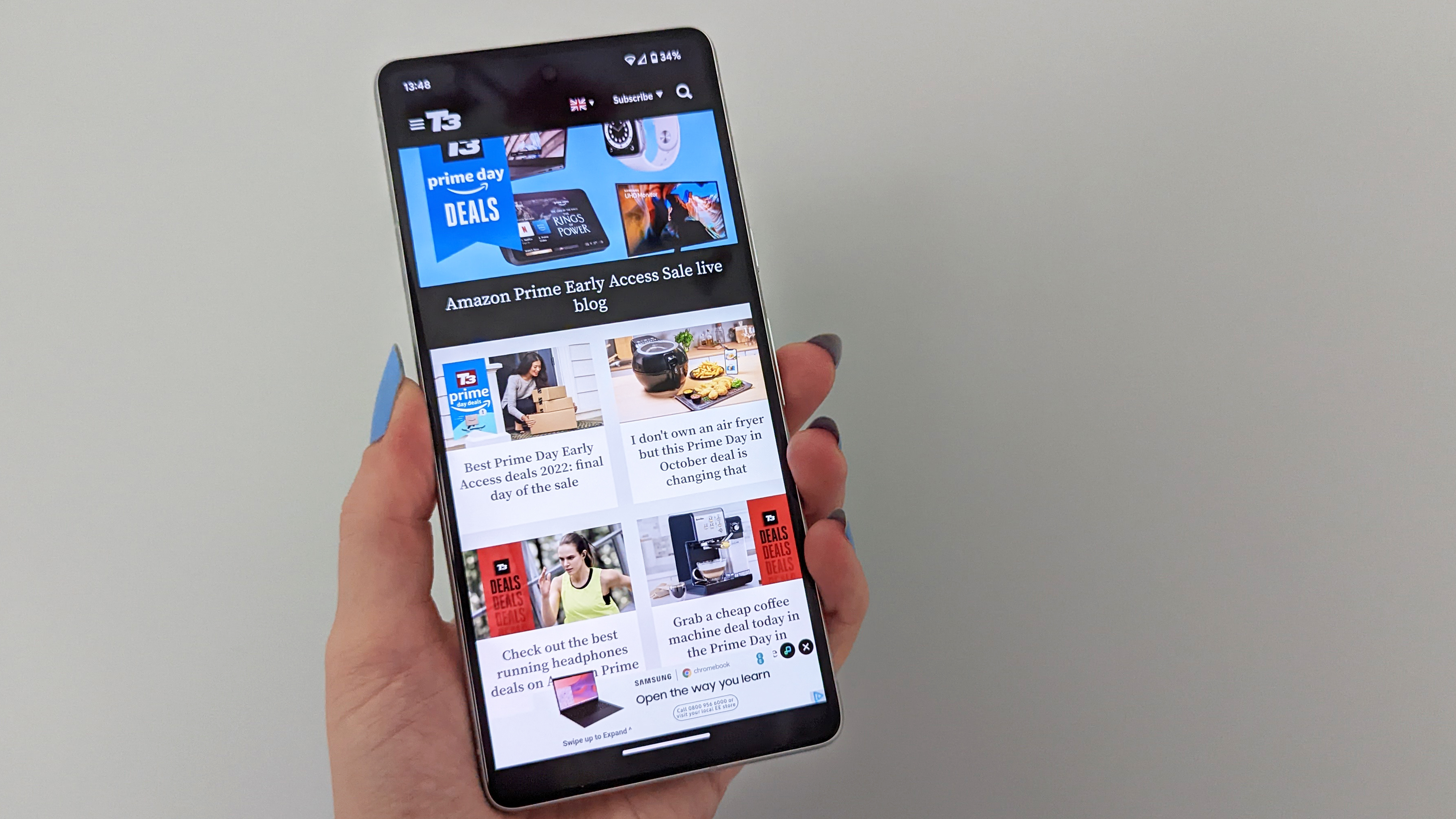
One of the very best things about Pixel phones is that they're powered by Google’s own Tensor chipset. The Pixel 7 comes packed with its second generation, alongside the Titan M2 security coprocessor, 8GB of RAM and 128GB of storage. There’s no MicroSD card slot to expand the memory which is a shame but not unusual.
All in all, the new CPU coped well with just about anything I could throw at it, with the handset staying cool as a cucumber throughout. Google’s Tensor G2 is less about delivering ultra-fast speeds for gaming and more about providing reliable smart features that you wouldn't get elsewhere and that work more effectively than they would elsewhere.
For instance, voice typing can cope better because of it, listening to every word and getting them down on the screen accurately each time - it even picked up intonation in my voice to add question marks where appropriate. On top of that, this CPU allows for a system that is completely controllable by voice through Google Assistant, you can actually use this phone almost completely hands-free if you want to and it'll hear you almost every time. The G2 chipset is also what makes all of those handy camera features possible, acting quickly and learning as it goes to produce stunning shots each time.
On a less positive note, while the 4,355mAh battery is good, it's not the best. I had to charge the Pixel 7 once a day during testing, it didn't quite stretch into two days. Granted that's with a fair amount of scrolling through social media, watching a video or two, responding to messages and snapping the occasional photo.
When I ran a video test on it, where I downloaded and played an HD TV show for over two hours at full brightness, the battery level dropped by 14%. That suggests it would have lasted just over 14 hours in total which isn't terrible, it's just fine. For comparison, some other phones I've tested lasted 20 hours or more, like the Oppo Find X5 Pro or even the more affordable Samsung Galaxy A53 5G.
Using a 30W USB-C charger, the Google Pixel 7 took just over an hour and a half to recharge from flat to full, which hardly compares to the 20 minutes it takes to charge some other recent phones like the Xiaomi 12 Pro. You'll also need to buy your own charger because this doesn't come with one in the box.
If you have the right kit, you will be able to charge the Pixel 7 wirelessly and it actually supports reverse wireless charging as well, like if you needed to give your true wireless earbuds a boost on the go.
Running pure Android 13, you don’t get much better software-wise than the Google Pixel 7.
You can effortlessly organise all of your apps into folders and swipe up to show your app drawer. In terms of layout and design, it’s all super intuitive and you can choose different colours or themes to run across the whole system. This phone can automatically screen your calls, and it’ll boost the quality of the ones you do answer.
When you're abroad, Live Translate and Google Lens will help you get by in a very big way. You’ll even get the Google One VPN at no extra cost which is a first. This list could go on for a long time because there are literally tonnes of OS benefits to using a Pixel 7 phone.
Google Pixel 7 review: verdict
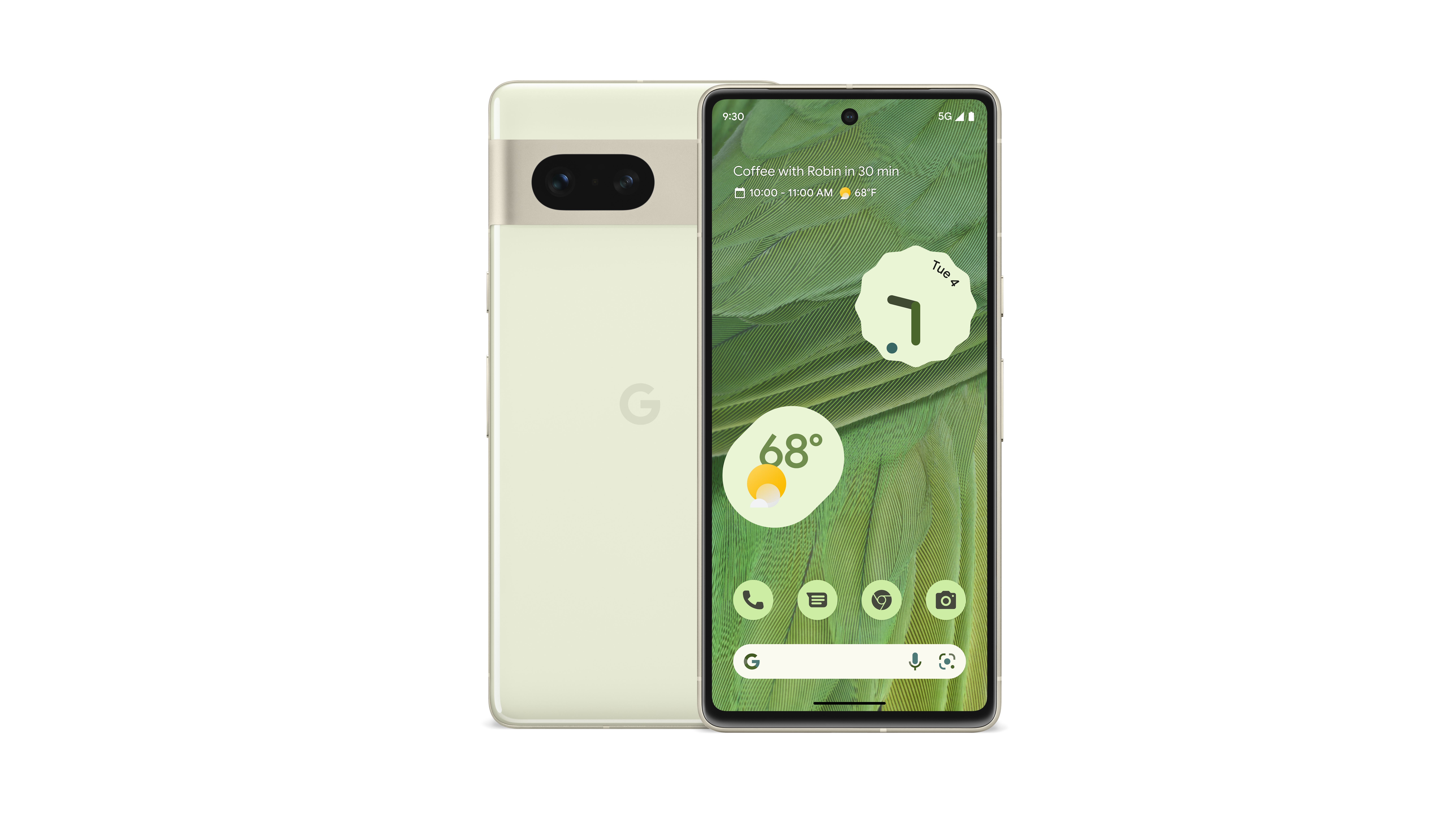
Undoubtedly one of the best smartphones you can buy when it comes to value for money, the Google Pixel 7 delivers in a lot of ways. The design looks great, the screen is bright and sharp, the camera system is superb and the performance is solid, not to mention how many extra smart features come with it like hands-free Google Assistant, Live Translate and Photo Unblur.
If I were to pinpoint some downfalls, I’d have to mention that this phone's battery doesn't last quite as long as some others and it takes a lot longer to charge as well, and while it is speedy, it’s still not going to be the best option for serious mobile gamers.
For those considering the upgrade from the Pixel 6, I'd say it's maybe not different enough unless you're particularly enamoured by the new design or enticed by the Tensor G2. But for just about anyone else, the Google Pixel 7 is sure to be very convincing because you couldn’t really ask for more at this price. It'd be very hard not to recommend this smartphone.
Google Pixel 7 review: also consider
If you’re looking for something a bit cheaper than this, the OnePlus Nord 2T could be worth a look because it hits that sweet spot with a mid-range price yet powerful performance and super fast charging, something that the Pixel 7 doesn’t have. Granted the camera won’t wow you as much but whether that matters will depend a lot on your priorities.
The Samsung Galaxy S22 Plus is another to think about, much like the Pixel 7, it offers a really excellent camera system alongside decent performance and solid battery life too. It’s an alternative for those who want a flagship phone but who don’t want a huge slate that costs a seriously eye-watering amount of money.

Yasmine is the former Reviews Writer for T3, so she's been knee-deep in the latest tech products for reviewing and curating into the best buying guides since she started in 2019. She keeps a finger on the pulse when it comes to the most exciting and innovative tech – and since departing has also held a role as Digital Spy's Tech Editor. In her free time, you'll catch her travelling the globe – the perks of being a freelance tech expert – tending to her plants when at home and, but of course, planning her next big trip.